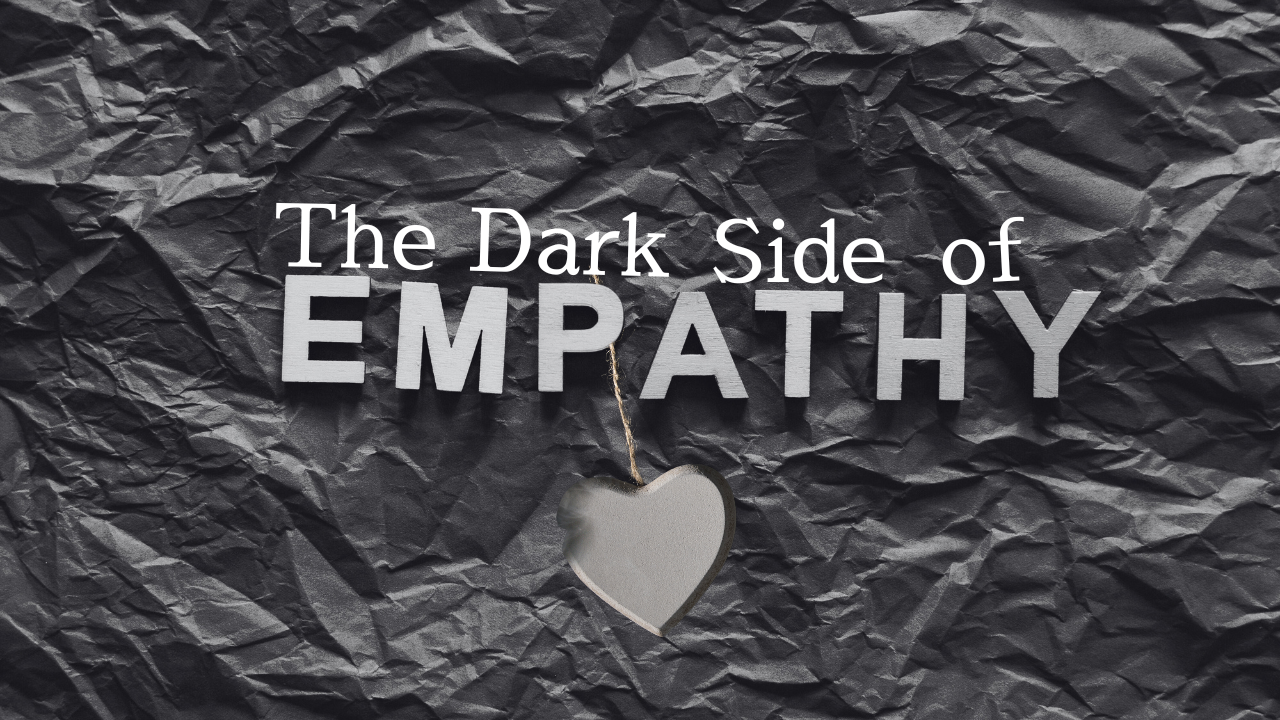The Dark Side of Empathy
When Too Much Empathy Clouds Judgment
Empathy – the ability to understand and share the feelings of others – is generally lauded as a virtue in modern society. It fosters connection, engenders compassion, and helps to build a more understanding world. However, like many things in life, too much of a good thing can quickly turn into a bad thing. Over-empathy is a phenomenon where the line between self and other blurs, often leading to a dark and tangled web of emotional confusion. It borders on sympathy, the feeling of pity or sorrow for someone else's misfortune, and it can lead to impaired judgment.
Understanding Empathy
Empathy is a crucial part of human interaction. It allows us to relate to others on a deep level and to appreciate their perspectives. It forms the bedrock of compassion, understanding, and kindness, creating bonds that help individuals and communities thrive. But when empathy becomes excessive, it can lead to a host of problems.
The Problem of Over-Empathy
Excessive empathy can result in what psychologists call 'emotional contagion', a state where you so deeply feel the emotions of others that you take them on as your own. Over time, this emotional burden can become unbearable, leading to emotional exhaustion and burnout. It can also blur the boundaries between your feelings and those of others, making it difficult to distinguish your emotions, needs, and desires.
Moreover, over-empathy can easily slip into sympathy. While empathy involves sharing others' feelings, sympathy involves feeling sorry for them. Empathy creates a connection, while sympathy can create a divide, often casting one person as a victim and the other as a rescuer. In this way, too much empathy can lead to unhelpful and unhealthy dynamics.
Over-Empathy and Impaired Judgment
In addition to the potential for emotional exhaustion, over-empathy can have a profound effect on our ability to make sound decisions. When we're so absorbed in another's emotions, we may lose sight of our own perspective. This clouded judgment can result in decisions that are not in our own best interest or in the best interest of those we care about.
For example, consider a parent who feels their child's disappointment so deeply that they intervene and try to fix every little problem. While their intention is to help, this behavior can prevent their child from learning valuable coping skills. Or consider a friend who constantly sacrifices their own needs to cater to a friend's emotional ups and downs, neglecting their own emotional health in the process.
In the realm of public policy and social issues, over-empathy can also lead to biases and unfair outcomes. When policymakers are overly empathetic towards one group, they might overlook the needs of another. This can result in unbalanced policies that cause more harm than good.
Balancing Empathy with Rationality
Empathy is essential, but it shouldn't be our only guide. It's crucial to balance empathy with rationality. This means acknowledging and validating others' feelings, but also maintaining the ability to make objective judgments based on facts and logic. It means knowing when to set boundaries to protect your emotional health.
This isn't about becoming less empathetic, but rather, about becoming more discerning in our empathy. It's about recognizing when empathy is starting to slip into sympathy and stepping back when necessary. It's about learning to manage empathy in a way that is beneficial for everyone involved.
Conclusion
While empathy is a vital part of human interaction, like anything else, it can be taken to an extreme. Over-empathy can blur the lines between self and other, can border on sympathy, and can cloud our judgment. By balancing empathy with rationality, we can better serve ourselves and others, ensuring that our decisions are not driven by emotion alone, but are well-rounded, thoughtful, and truly beneficial.
Remember, the ultimate goal is not to eliminate empathy, but to harness it wisely, making it a powerful tool in our emotional toolkit rather than a burden. Our capacity for empathy is one of our greatest gifts – let's make sure we're using it in a way that truly serves us and those around us.
Watch this video
Here I talk about some examples from my extroverted highly sensitive coworkers and how toxic it became.

Post a Comment